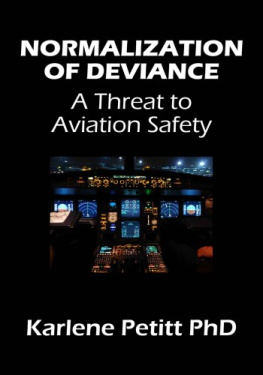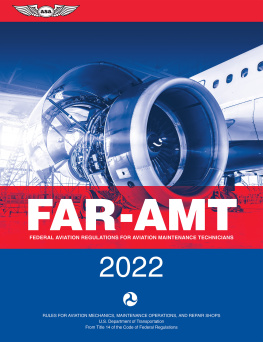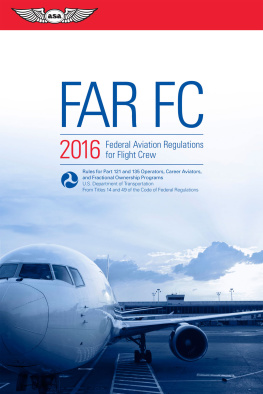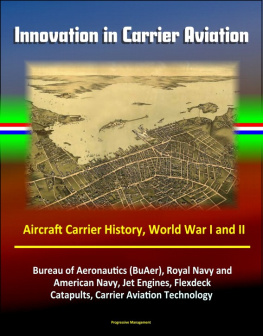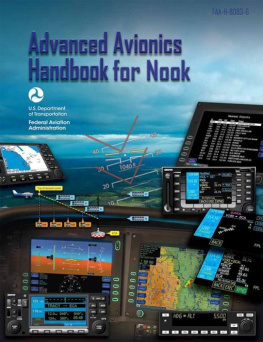Aviation in Crisis
For Vishesh, success in high school.
First published 2004 by Ashgate Publishing
Reissued 2018 by Routledge
2 Park Square, Milton Park, Abingdon, Oxon OX14 4RN
711 Third Avenue, New York, NY 10017, USA
Routledge is an imprint of the Taylor & Francis Group, an informa business
Copyright Ruwantissa I.R. Abeyratne, 2004
Ruwantissa I.R. Abeyratne has asserted his moral right under the Copyright, Designs and Patents Act, 1988, to be identified as the author of this work.
All rights reserved. No part of this book may be reprinted or reproduced or utilised in any form or by any electronic, mechanical, or other means, now known or hereafter invented, including photocopying and recording, or in any information storage or retrieval system, without permission in writing from the publishers.
Notice:
Product or corporate names may be trademarks or registered trademarks, and are used only for identification and explanation without intent to infringe.
Publishers Note
The publisher has gone to great lengths to ensure the quality of this reprint but points out that some imperfections in the original copies may be apparent.
Disclaimer
The publisher has made every effort to trace copyright holders and welcomes correspondence from those they have been unable to contact.
A Library of Congress record exists under LC control number: 2002025861
ISBN 13: 978-1-138-70974-4 (hbk)
ISBN 13: 978-1-315-19816-3 (ebk)
This work, the latest in a series of impressive treatises by Dr Abeyratne, will not fail to enlighten any lawyer or executive concerned with the current challenges facing the international airline industry. Focusing, from a primarily regulatory and aeropolitical perspective, on the crisis facing the airline industry, both before and after 11 September 2001, Dr Abeyratne has drawn together, in typical thoroughness and eloquence, a broad diversity of topics of fundamental significance to the industry. These include the implications of the depressed state of the industry for security, commercial transactions (including leasing and financing), insurance, environmental issues and air carrier liability.
Since the response of the world community to the crises in airline security, commercial transactions and insurance has been largely voiced through the medium of the International Civil Aviation Organization (ICAO), Dr Abeyratnes vantage point, as a senior legal officer in ICAO, makes him peculiarly qualified to address the topics considered in this work.
The reader will be impressed by the ability of the author to write with first-hand knowledge and experience on matters of both public and private international law, while at the same time considering the issues in numerous municipal jurisdictions, including the United Kingdom, United States and Canada.
This carefully researched and well-written book, which draws on the authors vast experience in the airline industry at both the governmental and private levels, represents a significant contribution to the literature in the field. I commend it to all who have an interest of any kind in the legal issues affecting the airline industry.
Rod D. Margo
Los Angeles
The events of 11 September 2001 defy modern economic theory when addressed in aviation terms. Economic theory would suggest that, once the impact of such events are a thing of the past, and economies are restored to their status quo ante, a rise in the gross domestic product of states to earlier levels would almost inevitably result in increased consumption. This in turn would mean that the demand for air travel would rise to earlier proportions and consumption in terms of air transport services would be restored to normality. However, the September attacks on United States property introduced a unique characteristic through the fear factor that directly effects the future development of air transport. As a result, the grim task of restoration of passenger confidence stands in the way of economic revival of the air transport industry.
In a manner of speaking, aviation was always in crisis. The air transport industry, even prior to 11 September 2001, although seemingly a glamorous, exciting and prosperous business, never enjoyed sustained periods of profitability. Even among the large carriers, a short bout of profitability would inevitably be followed by a period of downturn in real income. There is nothing arcane about this situation. It is simply that this fluctuation in fortune is an ineluctable characteristic of air transport, whose fortunes are dictated by rigid regulation, competition and technological change. For this reason, it would be doing the air transport industry an injustice if an analysis of the situation it is faced with should be strictly bifurcated into pre- and post-September 2001 segments. However, this by no means suggests that the tragic events of September did not gravely aggravate the fortunes of an industry already at a disadvantage. They placed issues in a strictly realistic perspective, making one realize that, if a sustained analysis were to be made of air transport, plain economic theory would no longer be the exclusive discipline for consideration. Rather, all relevant factors have to be taken in context and emerging issues should be analysed as possible threats to the economic well-being of the air transport industry.
Any study of present-day aviation would incontrovertibly involve viewing issues from both an economic and a legal perspective in addition to other relevant factors. In the field of aviation security, these two disciplines are intertwined with the regulatory regime, calling for a wide discussion of legal and regulatory regimes in the role played by states in ensuring security in aviation within their territories. In a parallel dimension, the importance of economic issues can be viewed as predominant in the field of insurance, particularly in the inquiry as to whether states should be establishing an aviation reinsurance pool to support airlines in crisis, thus giving states much more control over the running of their national airlines. Therefore, in an overall sense, the question arises as to whether increased state involvement in both security and insurance issues would not bring back rigid state control over national carriers. If this question were to be answered in the affirmative and day-to-day state control made a comeback, one would unavoidably have to inquire into the continued validity of gradual liberalization of market access, bringing the commercial angle into play and forming an interlinked triangle. When this phenomenon occurred, the necessary corollary the question as to whether absolute competition would no longer be a collective goal among states, and whether the need for added capacity would therefore no longer arise in the volumes earlier required would inevitably obviate the earlier compelling necessity for airlines to order new aircraft. They could continue using aircraft already in use to their maximum capacity. This added dimension would introduce environmental considerations, making the entire study a complex fabric woven with different but symbiotic threads.
This book not only addresses issues in a rigid post-September 2001 context but also analyses issues past and present, with the intent of looking at the future. This will be attempted by taking four major areas into consideration which were in crisis but are truly affected by the events of September 2001. These areas relate to crises in the commercial, security, insurance and environmental protection fields. Of these the first and fourth areas are inextricably intertwined, as aircraft noise regulations in various states have a direct impact on aircraft financing, which in turn is linked to demand for air services. A drop in demand for air services would essentially mean that the demand for lease or purchase of new aircraft would drop. When this occurred, air transport enterprises would be more inclined to cut costs and therefore concentrate on using the aircraft already at hand, upgrading them to conform to the more demanding noise and emissions regulatory standards. It therefore becomes necessary to view all these factors separately, in the multitude of issues they provide, with a view to understanding the course which the air transport industry will be taking in the future.



